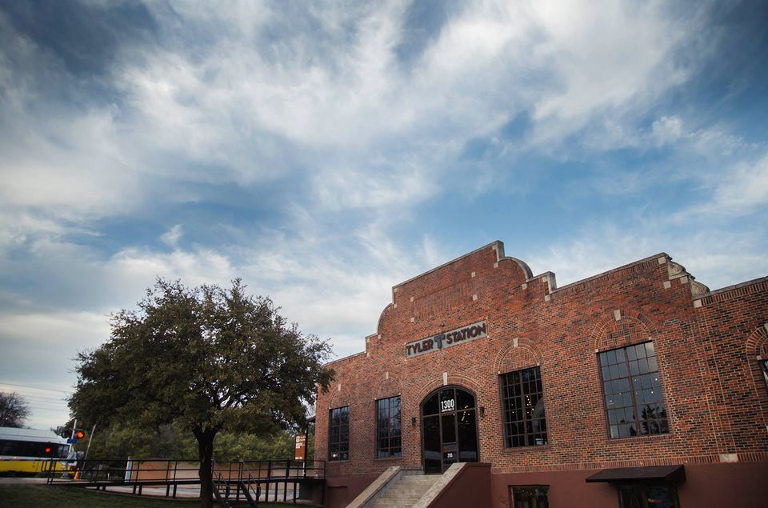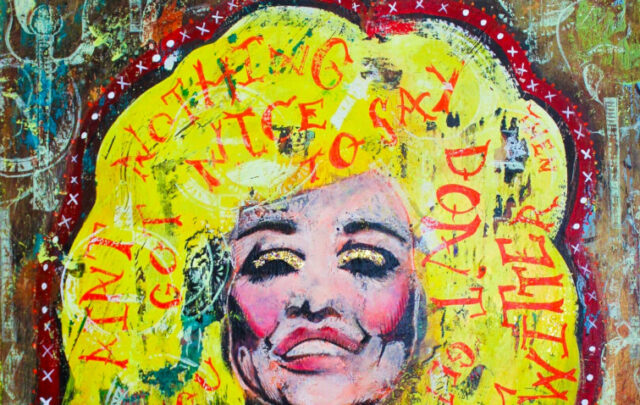Visitors to Dallas quickly hear about the Bishop Arts District, an espresso-and-hip-boutique retail area located in rough (but gentrifying) Oak Cliff. What they’re usually not expecting to find when visiting the neighborhood is a building called Tyler Station, a 100,000-square foot remake of the former Dixie Wax Paper factory. The site houses some 70 small businesses in what Southern Dallas County developer and human connector, Monte Anderson, calls “a collaborative village.” It’s a prime example of what’s known as incremental development.
Colliding for shared prosperity
Artists, makers, and entrepreneurs productively “collide” here — as Anderson likes to put it — in dizzying variety: A co-working space (Wax Space); a martial arts studio (Oak Cliff Aikikai); Oak Cliff Brewing; Crumb & Kettle bakery; a barber shop; a tea store (Zakti); tattoo studios; and an event space (Place at Tyler). “We also had a hippie Baptist church for a while,” he notes, “and now we have the studio of an African American author of what she calls ‘gangster love’ novels — over 100 of them.”
Inside is a vast, high-ceilinged honeycomb of retail spaces constructed with repurposed wood and metal cattle panels so as to allow visitors to look in or chat with a business owner. It’s a large and inviting space. Many colorful events have been held including a Juneteenth Festival, a diaper party, grand openings, Origami Saturday, The Color of Ideas lecture series, community meetings, and much more.
Another thing you notice: Quite a few of the tenants Anderson signs up are small, often minority-owned enterprises launched by people from the immediate area — and on shoestring budgets. As he describes the grassroots feel of Tyler Station, he pauses to add, “You get that this is not about real estate, right?”
A native of Southern Dallas County himself, Anderson is the founding and past president of the North Texas chapter of the Congress for New Urbanism, and a co-founder of the Incremental Development Alliance, a non-profit aimed at coaching small-scale, “missing middle” housing developers and an advocate of resident-driven neighborhood development. He is also a former motocross racer who barely made it through high school, as well as a remarkable social entrepreneur. His numerous real estate developments include a boutique hotel which was key in sparking the Oak Cliff comeback story.
Making it affordable for low-income tenants
Anderson explains,
“Tyler Station is just like what we’re going through now nationally with converting all the big box places, the office centers. We have to figure out how to scale down the rent to a point which is low enough for the area, while still high enough per square foot to make the project sustainable.”
Which for Anderson means without subsidies and all the usual strings attached.
“We bought Tyler Station in 2016 for cheap — nobody wanted it. There was environmental contamination, it needed a $750,000 roof, it was full of smokestack equipment and dead raccoons.”
About that time, he decided to partner with Stash Design, a successful studio which specializes in sourcing found and salvaged objects for clients wanting a green-but-stylish look. Taking 20,000 square feet, Stash Design became the project’s anchor tenant and minority partner.
An emergent marketing plan
Yet, the partners did not go into the project with a clear marketing plan. “I thought we would put in a bunch of industrial users, a bunch of makers. But that’s not who showed up,” Anderson says. “It’s like when you’re first cleaning out the building, and then the more you see, the more your ideas change. We just wanted to let the building tell us what it wanted to be.”
He takes his hands-on approach a step further.
“I want to teach people how to fish, as they say — but to do that, you have to spend time with them. I work mostly with the folks who are trying to scrape up $250 a month. I let my staff handle the regular business conversations back in the office. Where I’m needed is out in the trenches, feeling it, tasting it. For me, success is watching other people learn to do things — making it their own.”
“Farm where you are”
Toward that goal, Anderson is known for making personal low-interest or interest-free loans to entrepreneurs and cutting deals on the rent.
“Here’s an important thing — the majority of our tenants are close by here and from southern Dallas, which has some of the poorest neighborhoods in the country. This is exactly what we wanted to see. We wanted to impact the immediate area first, to give them opportunities.”
Translating that goal of localism into a phrase, Anderson simply advises.
“Farm where you are.”
This article originally appeared on Shareable.net
Teaser photo credit: Tyler Station Facebook page





